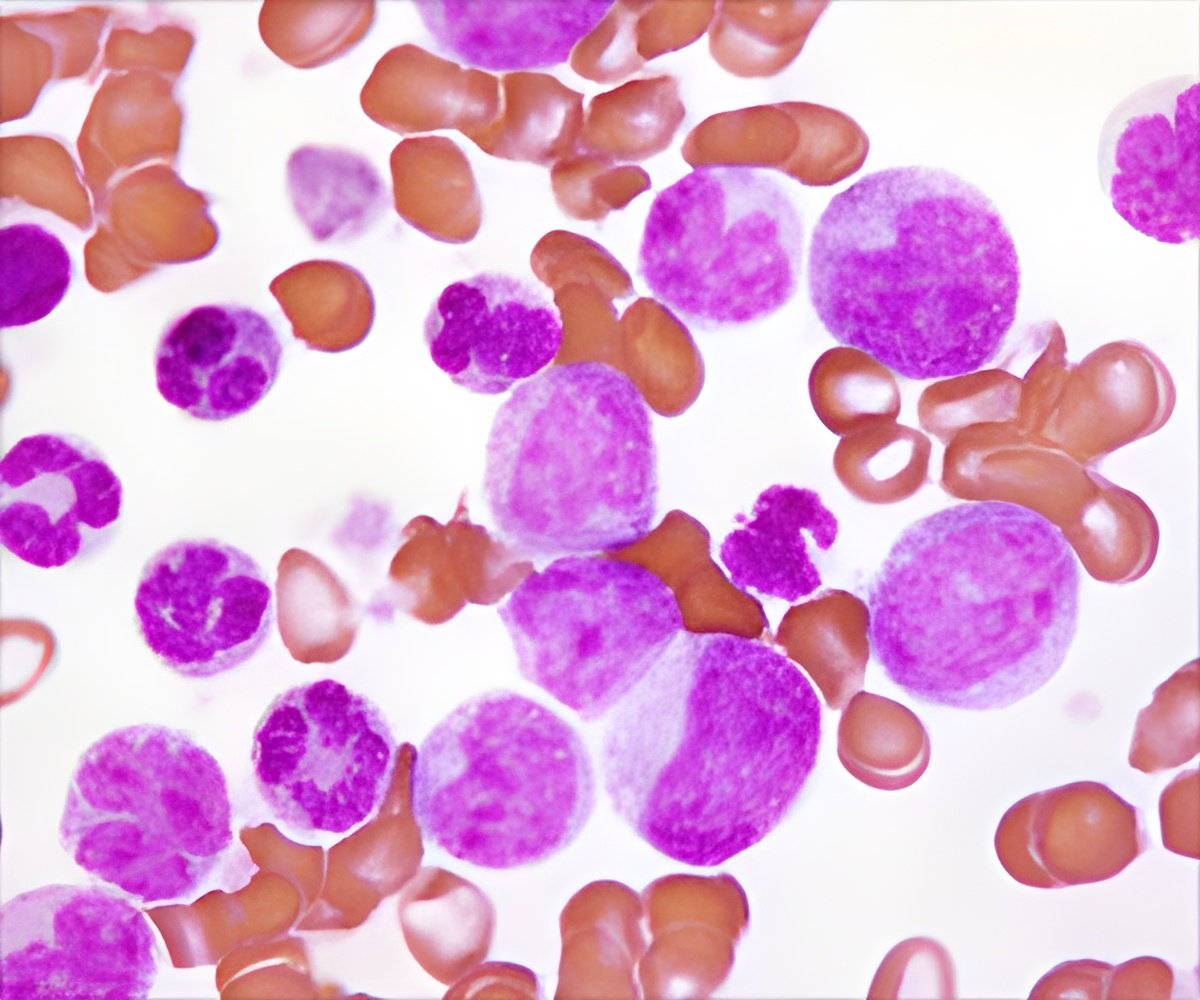
CLL, the most common form of leukemia, causes a gradual increase in white blood cells called B lymphocytes, or B cells. The National Cancer Institute estimates that 15,680 Americans were diagnosed with CLL and 4,580 died from the disease in 2013.
In the current phase 3 trial, patients were randomized to receive once-a-day oral ibrutinib or the anti-CD20 antibody ofatumumab, a drug considered part of the current standard of care for CLL.
Of the 391 patients enrolled to the phase 3 study, 195 were randomized to ibrutinib and 196 to ofatumumab. Median follow-up was 9.4 months and showed that ibrutinib significantly lengthened progression-free survival as a second-line therapy for CLL before anything else is used.
"At median follow-up, 86 percent of patients on ibrutinib had durable response and were continuing treatment with minimal side effects. This is remarkable, especially considering that standard CLL therapies typically produce a 35-40 percent response rate," says John C. Byrd, MD, principal investigator of the study and hematology division director at The Ohio State University Comprehensive Cancer Center – Arthur G. James Cancer Hospital and Richard J. Solove Research Institute (OSUCCC – James.)
At six months, 83 percent of patients treated with ibrutinib experienced progression-free survival compared to 49 percent of patients on ofatumumab. "Ibrutinib significantly prolonged progression-free survival, resulting in a 78 percent reduction in the risk of disease progression or death in patients treated with ibrutinib compared with ofatumumab," adds Byrd. "We observed similar progression-free survival results regardless of age, clinical stage or unique factors such as genetic mutation status."
Advertisement
At 12 months, the overall survival rate among patients treated with ibrutinib was 90 percent compared to 81 percent in ofatumumab arm. Additionally, 43 percent of patients on ibrutinib achieved partial response to treatment compared with just 4 percent of patients receiving ofatumumab.
Advertisement
Source-Eurekalert








